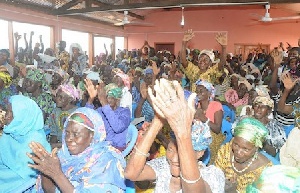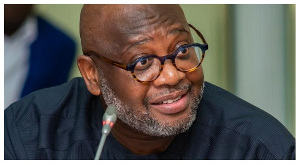The 6th Edition of the Faith to Action Women’s Conference (FAWC), has opened in Accra with a call on women to be agents for nation-building by uniting all people, regardless of ethnic or religious backgrounds.
Reverend Dr Ernestina Afriyie, Research Fellow and Dean of Students at the Akrofi-Christaller Institute of Theology, Mission and Culture, who gave the keynote address at the opening of the FAWC 2017, said women must recognise the importance of nation-building and play their role as agents effectively.
Speaking on the theme for the conference: “Women, Faith and Nation-Building,” at the opening of the three-day conference being held at the Presbyterian Women’s Centre in Abokobi, she said nation-building went beyond building a strong economy, improving road and other infrastructure or providing good healthcare, to consciously constructing a national identity with the aim of unifying the people within the state.
Rev Afriyie said women, by virtue of their being perceived as inferior to men; were in a unique position to foster love and unity among people from different backgrounds in Ghana, as agents of nation-building.
She noted that in order for women to foster unity between people of different backgrounds, it was important for them to desist from making negative comments about people from different backgrounds, both ethnic and religious, especially in the presence of children.
She explained that blurting out prejudices about who were different from us caused hurt and prevented those people from loving us, which was the main ingredient in fostering unity.
“It is love that brings about unity. A woman must work towards making the different ethnic groups in the nation love each other,” she stated, adding that children were like sponges, who soaked up such comments , which in turn shaped their thoughts and actions.
She encouraged women to come together to form advocacy groups to address issues like human rights violations, which could lead to unrests and violence and nib in the bud conditions that may cause the breach of the peace.
Rev Afriyie said faith or religion was also an important agent for nation-building, which should unite people rather than divide then.
According to her, most religions including Christianity, Islam, and traditional had injunctions for peaceful co-existence of people, although it seemed to always cause conflicts.
“Women of faith, let us put our energies into nation building and seek, by all means, to accept and draw in people who are different from us and build nations of love, peace and harmony. Only then can we enjoy the blessings of national development,” she stated.
Professor Philip Tetteh Laryea, Dean of Accredited Studies at the Akrofi-Christaller Institute, noted the importance of the FAWC, an annual conference of women from Christian, Muslim and Traditional leadership, saying, it served as a platform for inter-religious dialogue.
The conference, now in its sixth year, is aimed at inspiring and empowering women to transform their religious faiths into action for the peace and development of society, with a focus this year on creating awareness on the role of people of faith in nation-building.
“It our conviction that participants of this programme would be empowered to serve as useful resources for effective nation building and promote positive interfaith relations and collaborations in our communities,” he stated.
The participants include women leaders from the Presbyterian, Methodist, Anglican, Evangelical Presbyterian churches as well as Muslim and Traditional women leaders.
Regional News of Friday, 7 July 2017
Source: ghananewsagency.org

















